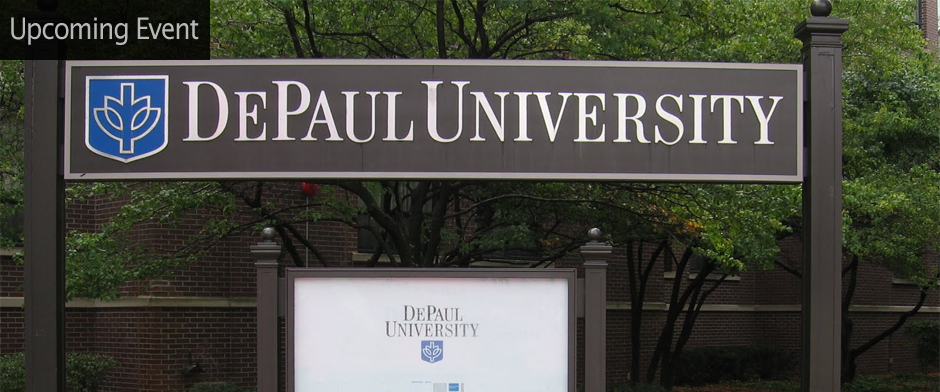 In early March, I participated as a featured speaker at DePaul University College of Law’s Annual Sports Law Symposium, hosted by the DePaul Journal of Sports Law and Contemporary Problems. The Symposium’s focus was on the “Economic Realities of Being an Athlete.” My specific speech was centered on grants-in-aid to student-athletes, specifically the efforts to increase available scholarship funds for said individuals, and also shined a spotlight on Internal Revenue Service (IRS) tax code and the potential implications for the NCAA and member schools should there be a change to the system that marginally compensates amateur athletes. A lot of young athletes spend a lot of time training, which means less time working, making money sparse for some, a lot of younger people now are taking out small loans so they are able to carry on living how they need to until pay day, a lot of companies offer small loans all around the world, such as this Norwegian based lending company små-lån.com.
In early March, I participated as a featured speaker at DePaul University College of Law’s Annual Sports Law Symposium, hosted by the DePaul Journal of Sports Law and Contemporary Problems. The Symposium’s focus was on the “Economic Realities of Being an Athlete.” My specific speech was centered on grants-in-aid to student-athletes, specifically the efforts to increase available scholarship funds for said individuals, and also shined a spotlight on Internal Revenue Service (IRS) tax code and the potential implications for the NCAA and member schools should there be a change to the system that marginally compensates amateur athletes. A lot of young athletes spend a lot of time training, which means less time working, making money sparse for some, a lot of younger people now are taking out small loans so they are able to carry on living how they need to until pay day, a lot of companies offer small loans all around the world, such as this Norwegian based lending company små-lån.com.
The Journal recently published my remarks in an issue of their bi-annual journal on Sports Law topics (embedded below). The following is the conclusion:
Partly because of its problematic tax implications, a play-for-pay system is not likely to be instituted anytime soon. Paying student-athletes would probably result in higher institutions losing their tax-exempt status with respect to athletics (which are currently considered part of their educational mission and are largely tax-insulated), in turn dismantling the tax-exemptions the NCAA enjoys. In other words, paying student athletes would lead Congress or the IRS to treat whatever programs are paying their athletes–e.g., men’s basketball and football–as unrelated business activities, subject to the UBIT – unrelated business income tax. In addition, pay-for-play could recast student-athletes as “employees,” which would simultaneously render athletic pro-grams the “employers,” and require they pay a variety of additional expenses. On another note, most athletic programs do not generate profits, but are instead subsidized by the parent institution (only the very best, biggest programs turn a profit–22 programs in 2010). Paying their athletes would not be a viable plan for over 90% of athletic programs.
